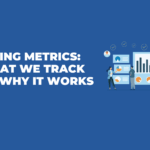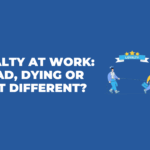Recruitment has a lot of moving parts and even with structured systems, key areas are often overlooked. This can lead to inefficiencies, miscommunication and missed opportunities. This week at Career Recruiters Inc., we’re exploring these gaps and sharing practical ways to tackle them.
Are you bringing in all the right voices from the start?
Getting all stakeholders involved from day one makes the recruitment process more efficient and focused. While HR and talent acquisition are typically included, it’s just as essential to engage the immediate manager, their supervisor and important team members who will work directly with the new hire.
More perspectives provide a clearer idea of what’s needed. As a recruiter, the more insights I get, the better the search—and the hire. It saves time, cuts confusion and gets everyone on the same page from day one.
How well do you know the market?
Staying current with the job market is crucial to offering competitive compensation that attracts top talent. Staying up to date on factors like regional cost-of-living differences, industry demand and emerging job trends is key to aligning salary expectations with what candidates want.
Neglecting to stay informed can lead to offers that miss the mark, making it harder to attract or retain talent. For instance, ignoring regional cost-of-living variations can result in salaries that are either too high or too low. Not accounting for shifts in candidate priorities, like the demand for hybrid/remote work, can also cause missed opportunities. Regularly reviewing market data helps ensure your offers stay competitive.
How structured is your interview process for better hires?
Interviews are a critical stage in the hiring process and a structured approach enhances consistency, efficiency and the candidate experience. A clear structure ensures key insights are captured and provides consistency across all interviews.
To optimize the process, try blocking times and scheduling interviews in advance to align with candidate availability. Involving team members early and ensuring senior leaders are available for final rounds helps avoid any last-minute changes. Providing clear timelines and flexibility for candidates can also enhance their experience, showing your company’s commitment to a well-organized and respectful hiring process.
Is your feedback process improving or hurting the candidate experience?
A transparent feedback process is key to building trust and maintaining respect for candidates’ time. Great companies are clear about when candidates can expect to hear back. They set expectations upfront and keep candidates informed if there are delays.
By explaining the reasons for the hold-up and providing a timeline for the next update, they ensure candidates know what to expect and when. This approach helps manage expectations and ensures candidates feel respected and valued throughout the process.
Is your recruitment strategy agile enough?
Recruitment needs to be flexible and in tune with long-term goals. With new generations bringing fresh expectations like flexibility and hybrid/remote work, your strategy should evolve to attract top talent while keeping an eye on the future. Being agile means adjusting quickly to market trends and ensuring that the talent you hire today helps drive long-term growth.
A smart recruitment approach fills immediate gaps but also builds a team that grows with your company. By balancing short-term needs with future goals, your strategy stays competitive and keeps up with what candidates expect.
By asking the right questions, you can pinpoint areas of improvement and ensure you’re attracting the best candidates. Ready to improve your hiring process? Get in touch with us today at Career Recruiters Inc.






